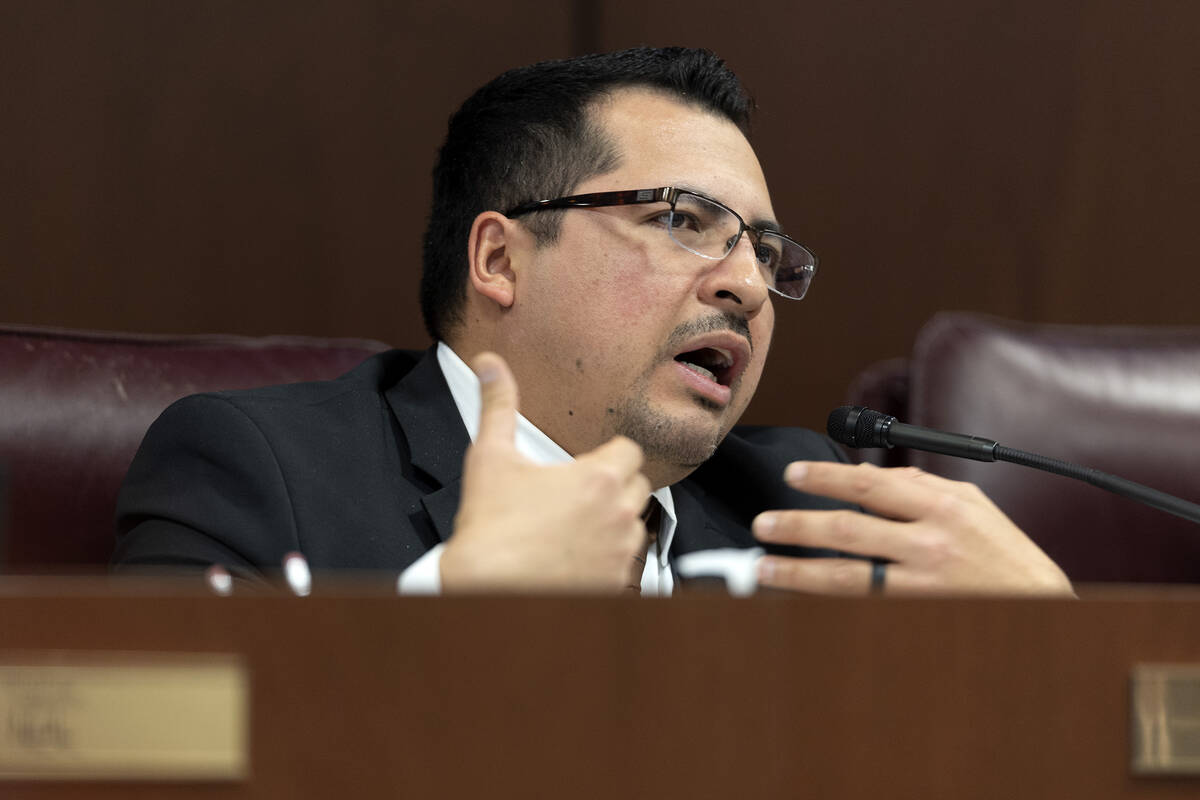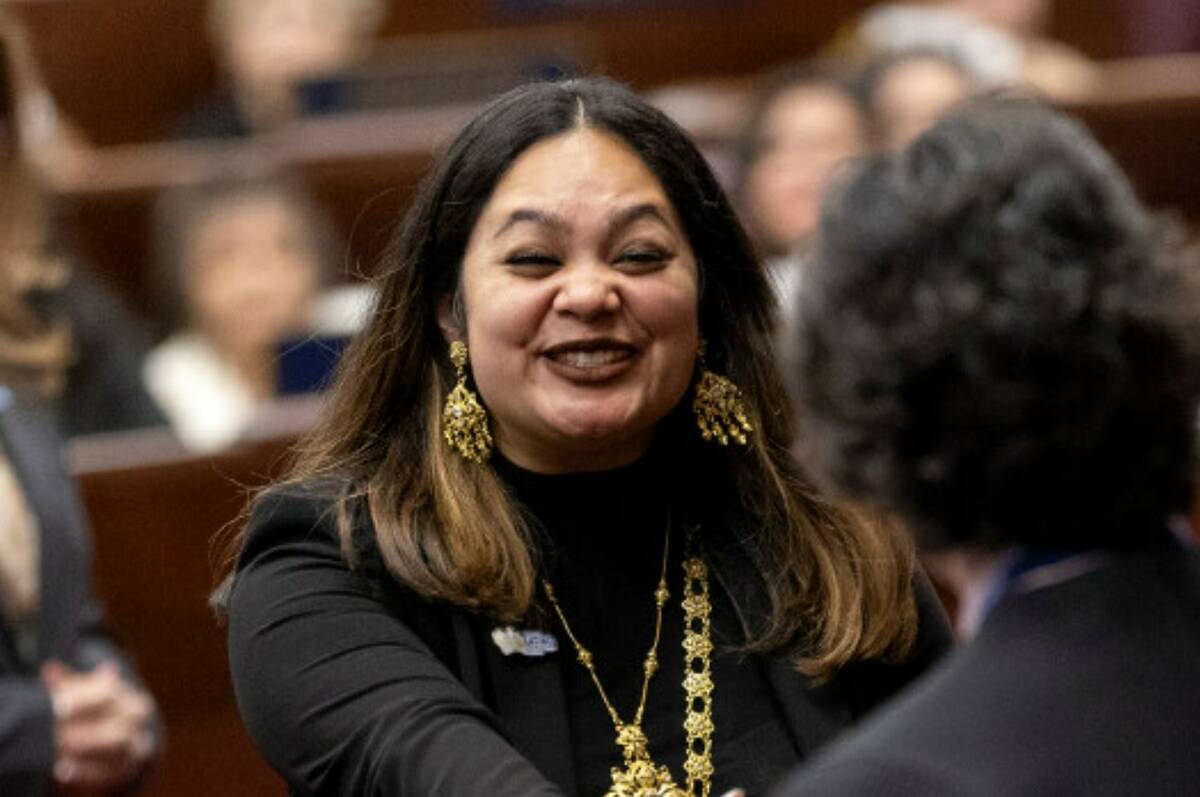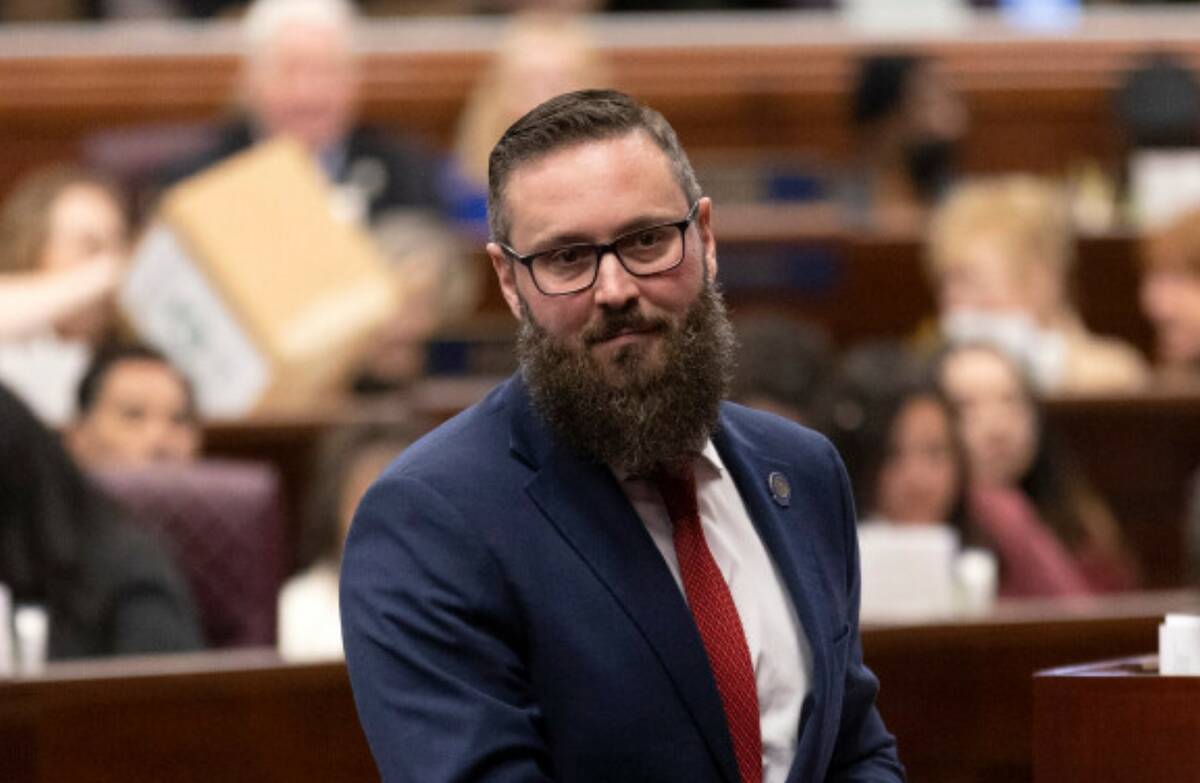Assembly hears passionate testimony on medically assisted suicide
An Assembly committee heard hours of impassioned testimony Wednesday on a right-to-die bill that supporters say would give the terminally ill a choice to end their suffering but that opponents say would lead to abuses of society’s most vulnerable.
The Assembly Committee on Health and Human Services heard testimony on Senate Bill 239, which narrowly passed in the Senate. It would allow those 18 and older expected to live six months or less to request lethal medication they could self-administer to end their own lives.
Democratic Sen. Edgar Flores, a primary sponsor of the legislation, presented the bill by saying that many residents on opposing sides of the issue had shared with him their personal stories related to death.
“No one I’ve spoken to yet has not come to the table engaging in the conversation through a lens of what is best for Nevadans, what is best for humans,” he said.
However, there was no middle ground Wednesday on what “best” might be — not among lawmakers, medical professionals or residents.
Sara Manns, who is with the advocacy group Compassion & Choices, said medically assisted dying has been used in 10 states and the District of Columbia without documented instances of abuse, a claim that opponents disputed.
Opponents say that the measure could result in insurance companies and even relatives pressuring patients to end their lives to reduce costs, making the poor especially vulnerable.
Democratic Assemblywoman Cecelia Gonzalez said the bill’s requirement that a patient be diagnosed as terminal by two different physicians provides a safeguard against abuse. She also said that data doesn’t suggest that medical aid in dying is used more often by the poor.
However, Republican Assemblyman Gregory Hafen said he was concerned about the impact of normalizing suicide on the state’s mental health crisis. Other Republican lawmakers disputed that adequate safeguards against abuse are in place.
Medical professionals also took opposing views.
“As an ER doctor, I see a great number of patients suffer at the end of their lives,” said Dr. Clare Johnson, an emergency medicine physician in Reno. “I have seen men who are 6-foot-2 weighing only 130 pounds as they finished chemotherapy. I’m relieved to know that we in Nevada are once again considering a bill that would honor the options of terminally ill people to decide how and when they die.”
However, a hospice physician testified, “Why do we think the patient care in Nevada will be improved if doctors are able to help kill their patients rather than curing them? Nevada already has in place infrastructure to honor all citizens at the end of life. We can relieve pain, manage symptoms, maintain dignity in the face of loss of function,” he said.
Residents spoke of how witnessing the deaths of loved ones formed their views. One woman spoke of how after a toast with Dom Perignon, her dying aunt in California — where medically assisted dying is legal — cheerfully ended her terrible suffering by then swallowing a lethal cocktail.
But another woman spoke of how her husband near death — who said he would have used medically assisted dying if available to him — experienced a dramatic recovery, allowing the couple to then enjoy the best years of their marriage.
The bill will go to the full Assembly for consideration.
Contact Mary Hynes at mhynes@reviewjournal.com or 702-383-0336. Follow @MaryHynes1 on Twitter.





















